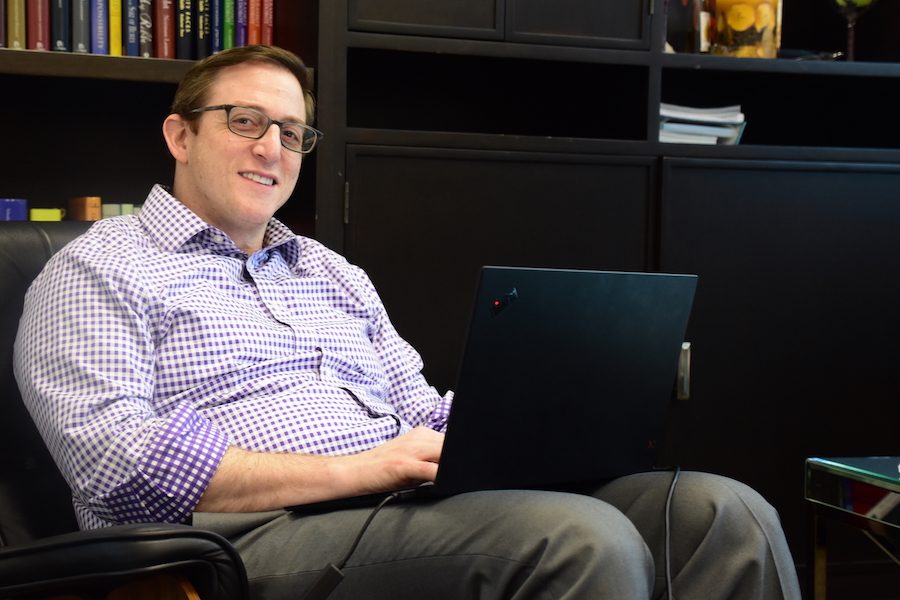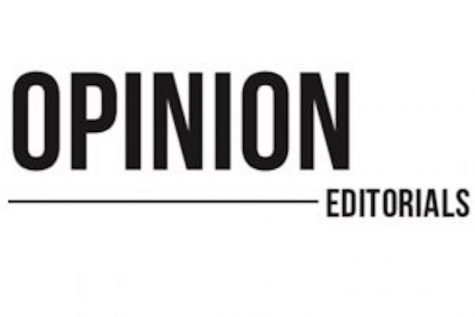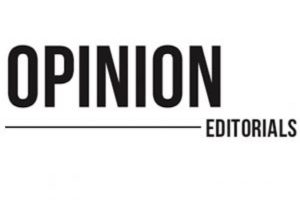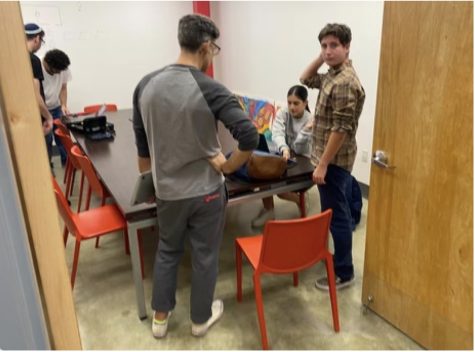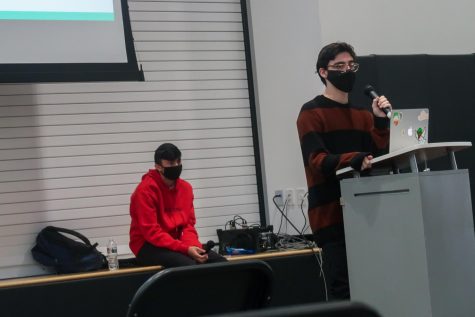New harassment policy sets rules, defines terms
PREVENTATIVE: Rabbi Segal said the policy was written with the intention of preventing bullying and creating a safer environment for students and faculty.
After several Town Hall discussions and heated debates about what exactly sexual harassment is, the school released a new harassment, discrimination and retaliation policy that outlines complaint procedure, reporting, an investigation process, confidentiality and remedial and disciplinary action.
The policy was announced Feb. 1 in an email from Head of School Rabbi Ari Segal.
“We wanted to be more proactive about making sure that the environment was healthy and safe for everyone,” Rabbi Segal said in an interview with the Boiling Point.
“These issues are complicated so we wanted to do more to bring some clarity to them, and to raise awareness around them and to create policies around them.”
In the past, Shalhevet students have disagreed about matters regarding the #MeToo movement and how to define sexual harassment.
A Town Hall last year where students were separated by gender seemed to compound the confusion. When the two genders came back together for the last part of the meeting, disagreements broke out.
“Thirty-three million women in the U.S. have been sexually harassed… Okay, so is that verbal harassment or is that actual physical harassment?” said then sophomore Noah Herzberg in an interview at the time.
“And then… okay, well if you call someone ‘honey,’ that is harassment. How is that harassment? How does that make any sense?”
Girls worried that they would not be believed if they said something happened, and then would be blamed for not coming forward if they therefore didn’t report it.
“I’m just wondering why it’s felt that the burden of being sexually assaulted falls on the victim for them to speak out,” said then-senior Maia Zelkha.
The new policy clears up these questions and others.
It says anything experienced or witnessed should be immediately reported to “any employee of the School with whom they are comfortable, such as the Head of School, another administrator, a teacher, a counselor, or coach.”
Anyone found guilty will be subject to discipline including possible expulsion, and consequences may be disclosed to prospective employers, colleges and gap year programs and during “any administrative or legal proceedings,” it states.
The old policy, located on page 20 in Student Conduct section of the 2018-19 Parent-Student Hand- book, only outlines what to do in cases of bigotry and sexual harassment or behavior.
The new policy includes and defines bullying, physical harassment and verbal harassment. It also deals with the concept of “micro-aggressions.”
Bullying is defined as “any physical or verbal act or conduct, including written and electronic communications, directed toward a student or faculty member which places such individual(s) in reasonable fear of harm to his/her person or property, has a detrimental effect on his/her physical or mental health, and/or interferes with his/her academic or co-curricular performance or participation in any services, activities or programs of the school.”
Physical harassment is defined as “intimidating conduct, such as touching of a person or a person’s property, hazing, assault, grabbing, stalking or blocking or impeding a person’s movement.”
Verbal harassment, it says, is sending mean or threatening messages, spreading rumors, sexting, assuming another’s identity, posting private or embarrassing info about another or forwarding a message that was meant to be private, whether in person or online.
“Bullying is real,” Rabbi Segal wrote in his email. “Physical bullying. Emotional bullying. It happens.
“Now, I like to think that Shalhevet students are some of the most warm, kind-hearted, supportive young adults I’ve ever met,” he wrote. “Still, it’s important to get out ahead of the issue and build a culture that does not allow for that sort of environment, under any circumstance.”
Harvard-Westlake in Los Angeles, the Frisch School in New Jersey and Berman Hebrew Academy in Maryland all have anti-harassment policies on their websites. (YULA, De Toledo and Milken in Los Angeles and Ramaz and SAR in the New York area do not, though they may have policies that are not public.)
General Studies Principal Mr. Daniel Weslow said the new policy was a matter of staying up to date. He said the new policy had been written by the entire Administrative Team, comprised of Head of School Rabbi Segal, Assistant Principal Rabbi David Block, Dean of Student Life Dr. Johnny Ravanshenas and Executive Director Sarah Emerson, and reviewed by the school’s lawyers.
“Whether it’s something like dress code or something like off-campus privileges, and bigger topics of all handbooks… all of that stuff needs to be reviewed annually,” Mr. Weslow said. “We’re constantly looking at the best practices in that realm.”
Mr. Weslow said there was a policy in place for faculty as well, but he declined to share it with the Boiling Point. Rabbi Segal said the staff policy already in place in the faculty handbook is “more robust.”
“We have something in the faculty handbook already about appropriate conduct,” Rabbi Segal said. “We are working on a more specific policy similar to this one that would broaden and expand on what we mean.”
I think what could be better is to specifically give examples so that people know what some guidelines are.
— Noah Hertzberg, 11th grade
The new policy begins by highlighting its connection to Judaism.
“As a Yeshiva, Torah values frame our decisions,” the policy states. “The Torah teaches us the value of chesed, menschlechkeit, and using speech to help rather than degrade ourselves and others. We teach all stakeholders to value a supportive, healthy and safe environment.”
In a section on safe spaces, it defines microaggressions as “statement[s], action[s], or incident[s] regarded as an instance of indirect, subtle, or unintentional discrimination against members of a marginalized group such as a racial or ethnic minority.”
It then references a letter put out by the University of Chicago in 2016, saying that the university does not support “trigger warnings” and will not cancel speakers because they are controversial.
“We do not condone the creation of intellectual ‘safe spaces’ where individuals can retreat from ideas and perspectives at odds with their own,” UChicago’s letter says.
The safe space section is called “An important note (based on the University of Chicago Statement)” and says that Shalhevet seeks to balance debate and sensitivity to people.
“Faculty, students and staff are free to criticize, contest and condemn the views expressed on campus” but “they may not obstruct, disrupt, or otherwise interfere with the freedom of others to express views they reject or even loathe,” it says.
The policy does not recognize “microaggression” as a form of harassment unless it is pervasive and intentional.
Students have mostly reacted favorably, saying that the new policy allows for people to engage in conversation across opinions. “Especially in today’s world, you want to make sure that everybody’s able to share their voice and that their voice is heard,” said freshman Adina Kurzban. “So if you had certain people kicking other people out, then it wouldn’t be good.
“You want to make sure that everybody’s able to always be heard and to always share their opinion and hear the other side and other opinions.”
Senior Noa Kligfeld said she was conflicted about safe spaces and microaggressions, but didn’t think it mattered too much in high school.
“I don’t think it’s something that high schools need to be protected from,” said Noa.
Noah Herzberg is glad that there’s a policy in place, but is still unhappy with the definition of sexual harassment.
“It’s kind of vague because it says anything unwanted,” he said. “So if you’re being led on, but you don’t know that you’re being led on and you think you actually have a shot and then you go for something outlandish, like ask her out, or go even further and say, Hey, do you want to hook up?’ and that person was just leading you on, that could be seen as sexual harassment. I don’t think that’s sexual harassment.”
“I think it’s better to have at least a policy but I think what could be better is to specifically give examples so that people know what some guidelines are. There’s a difference between an obscene picture and asking a girl to hook up and being rejected. I think there’s a spectrum, and depending on how serious it is there should be certain ramifications.”
Sophomore Kate Orlanski does not like the last sentence of the policy, which states: “While we strongly encourage our students and staff to speak respectfully in all situations, we do not believe that a microaggression counts as harassment unless it is pervasive and intended to harass, offend or demean.”
Even though it says it would only be a problem if “pervasive” and intended to cause harm, she said there should be no rule.
“The point of a microaggression is that you’re offending someone,” Kate said. “I don’t think it’s a rule that we should have at Shalhevet that if you say something like that, it’s considered harassment, because anything is offensive to somebody. If it’s offensive to somebody and considered harassment, then anything can be considered harassment.”
The policy extends to school hours, school-sponsored events, the internet or anywhere in the high school community and is meant to control bullying of any kind.
Students are happy with this clarity.
“I think it’s really good that they made it clear,” said senior Kira Faerstain. “A lot of people don’t understand when someone says ‘you’re making me uncomfortable’ or ‘that’s sexual harassment’ because they’re uneducated about it.
“But since we have access through Schoology to look at the handbook where they can really see the new policy, it’s going to make things a lot better.”
Junior Yarin Amzalag agreed.
“We actually get to know what’s happening and we don’t get to argue back,” he said. “We already know what the rules are.”
Get the latest from The Boiling Point. Sign up for our news feed.

Clara Sandler was co-editor-in-chief during the 2018-19 school year and then studied at the Midreshet Lindenbaum seminary in Jerusalem. She is now a junior at the University of Chicago.

